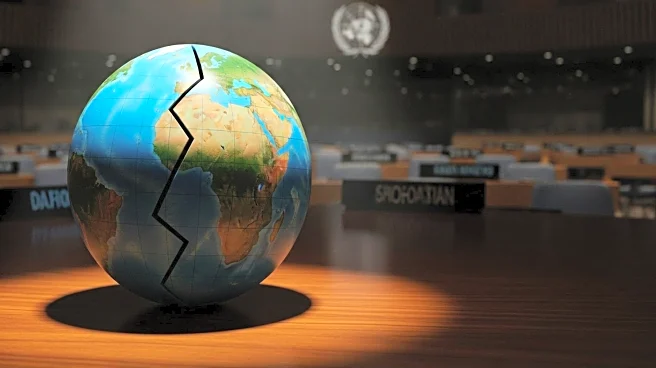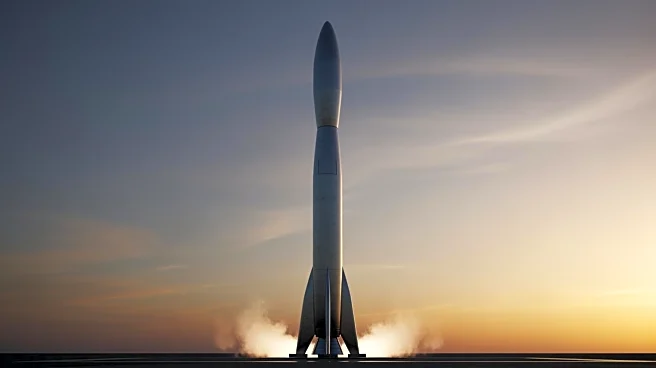What is the story about?
What's Happening?
The United States has denied visas to the Palestinian delegation, including President Mahmoud Abbas, for the upcoming UN General Assembly session in New York. This decision has led to calls for relocating the meeting to Geneva. The refusal is part of a broader policy by President Trump’s administration, citing national security concerns and the Palestinian Authority's alleged failure to repudiate terrorism. The move has sparked international debate, with European officials suggesting a temporary transfer to Geneva to ensure Palestinian representation. The US State Department has emphasized the need for the Palestinian Authority to comply with commitments and end incitement to terrorism.
Why It's Important?
The visa denial could have significant diplomatic repercussions, affecting US-Palestinian relations and the broader Middle East peace process. It underscores the US administration's hardline stance on Palestinian issues, potentially influencing international perceptions and diplomatic strategies. The refusal may hinder efforts towards a two-state solution, as key discussions and recognitions planned at the UN meeting could be disrupted. This development might also affect US relations with other countries advocating for Palestinian statehood, potentially leading to shifts in alliances and diplomatic tensions.
What's Next?
If the UN meeting is moved to Geneva, it could set a precedent for future diplomatic events, challenging the US's role as a host for international gatherings. The Palestinian delegation's exclusion might prompt other nations to reconsider their diplomatic strategies and alliances. The situation could lead to increased advocacy for Palestinian statehood and further international pressure on the US to alter its policies. Additionally, the US's stance may provoke reactions from other countries facing similar visa restrictions, potentially affecting future diplomatic engagements.
















